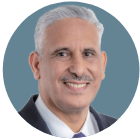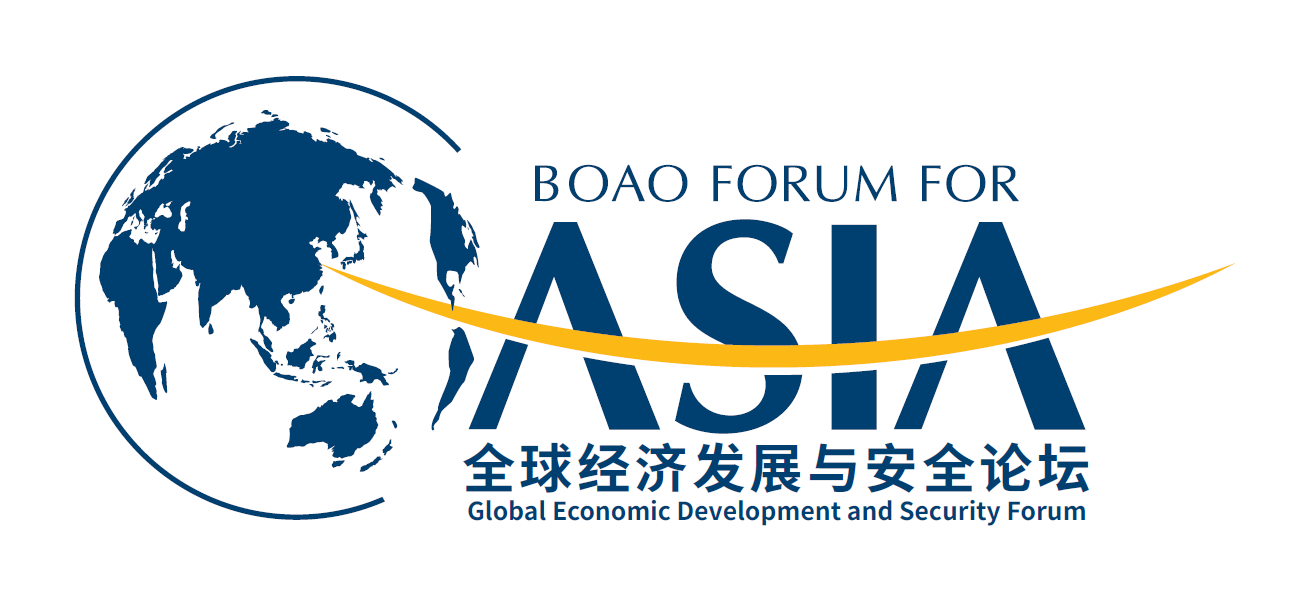
阿卜杜拉哈曼·阿尔-法季
博鳌亚洲论坛理事
沙特基础工业公司(SABIC)首席执行官
Abdulrahman AL-FAGEEH
BFA Board Member & CEO of SABIC
答:展望未来,我们需要在发展规划中牢记能源三难困境(可负担性、安全性和可持续性),并将其纳入考量。在我的设想中,从现在到2060年,化工行业的技术突破主要将与可再生电力的使用有关,关键的生产装置最终将使用可再生电力。例如,电热蒸汽裂解装置有望将乙烯和丙烯生产过程中的二氧化碳排放量减少90%以上,也正因此,SABIC正携手巴斯夫和林德共同打造全球首座电热蒸汽裂解装置。同样,如果我们能提高水电解工艺的性能,代替甲烷转化,则可以在几乎零排放的情况下,生产用于合成氨或甲醇的氢气。
太阳能凭借其高效和高性价比,在目前的可再生能源解决方案中占有主导地位,是最主流的技术之一。我们很高兴看到在提升光伏发电效率、扩展光伏应用场景以及储能设备(电池)尺寸等方面取得了新的技术突破,提升了能源的可负担性。与此同时,光伏工程设计和商业化方面的进展也令人振奋,这能确保最终产品的经济性、坚固性、可靠性和耐用性。SABIC始终坚持与中国合作伙伴携手同行,支持这一全球最大的光伏市场,为光伏组件、逆变器和水上光伏漂浮件提供创新材料和解决方案,帮助光伏系统在更多应用场景中充分发挥作用。
电热蒸汽裂解、水电解和光伏技术,是SABIC作为碳中和路线图的关键环节进行开发或支持的技术,能够将日益普遍的绿色资源更好地应用于化工行业。
问:如何打造鼓励创新、包容失败的企业文化和社会环境?
答:SABIC的愿景是成为世界化学领域的卓越领导者,从建立技术创新团队、增强创新能力,到价值链合作,培养本土人才,并不断追求卓越运营,我们将创新融入业务的方方面面。
为加快决策过程并促进创新,我们发现有两点至关重要。首先,公司必须成为一个学习型组织,让员工能够自由尝试新想法,不必害怕失败。其次,职场灵活性不仅能简化流程和程序,更可以促进团队协作,从而推动创新。
因此,SABIC打算采用一种“学习者心态”,赋能员工,鼓励尝试。这种心态为失败创造了一个透明、安全的环境,让员工在承认或报告失败时有一种安全感,将失败视为改进的机会,而不是工作中的污点。与此同时,敏捷的决策过程绝不能以牺牲合规性、协作性为代价,也不能因为操之过急而导致安全事故的发生。
根据上述指导原则,SABIC可以进一步采用具体的分类策略,来推动不同层次、不同性质的创新。例如,在科研和工程开发领域,我们可以根据对失败的宽容度来划分研发项目。因此,SABIC有一些研发中心专门为不能承受不必要延误的客户提供及时的解决方案,也有一些研发中心专注于较为长期的战略项目,这些项目有更多时间反复尝试,最后找到正确的方向。
A: Looking ahead, we need to keep in mind and consider the Energy Trilemma (affordability and access, energy security and environmental sustainability) as a guide in developing our road map. The technological breakthroughs I envisage between now and 2060 have mostly to do with the use of renewable electricity in the chemical industry. I expect that crucial manufacturing units will eventually run on renewable electricity. An electrically heated steam cracker, for example, has the potential to reduce the CO2 emissions linked with ethylene and propylene production by over 90%. That’s why SABIC is collaborating with BASF and Linde on the world’s first large-scale “e-cracker”. Similarly, hydrogen for the production of ammonia or methanol could be made with virtually zero emissions if we can improve the performance of water electrolyzers and use them instead of methane reformers.
Among current renewable energy solutions, solar power remains one of the most dominant technologies, primarily due to its high efficiency and cost-effectiveness. We are happy to see new technology breakthroughs achieved to promote efficiency and lower the size of photovoltaic systems as well as electricity storage devices (batteries) for energy affordability. At the same time, it is exciting to see progress in engineering and commercialization that ensures the affordability, robustness, reliability and durability of end products. SABIC has been collaborating with partners in China to support this largest photovoltaic (PV) market globally, supplying innovative materials and solutions for PV modules, inverters and floaters, to help PV systems operate sufficiently in more places.
E-cracking, electrolyzer and PV are technologies that are being either developed or supported as part of SABIC’s carbon-neutrality roadmap, promoting the alignment between increasing green sources and their applications in the chemical industry.
Q: How do we build corporate cultures and social environments that will encourage innovation and tolerate failure?
A: With the vision to become the world’s preferred leader in chemicals, SABIC has embedded innovation into every aspect of our business, from the establishment of Technology & Innovation teams and build-up of innovation capabilities to value-chain collaboration, cultivation of local talents and pursuit of operation excellence.
We found two important points in a companywide intervention that we launched to accelerate decision-making and promote innovation. First, the company has to become more of a learning organization where employees feel free to try out new ideas without fear of failure. Second, achieving agility is more a matter of promoting the right collaborative behavior than it is of streamlining processes and procedures.
As a consequence, SABIC intends to adopt a “learner mindset” in which we’re open to empowering our employees and testing ideas. The mindset creates a transparent and safe environment for failure, making employees feel safe admitting or reporting failures and treating it as an opportunity to improve rather than a stain. In the meantime, agile decision-making must not come at the expense of compliance, collaboration, or undue haste leading to safety incidents.
Guided by the above-mentioned fundamental spirit, SABIC can further apply specific segregation strategies to promote innovation at different levels with different natures. For example, in the realm of scientific research and engineering development, we can segregate R&D projects according to their tolerance of failure. That’s why some of SABIC’s technology centers concentrate on urgent solutions for customers, who cannot afford undue delays, whereas other centers concentrate on longer-term, strategic projects that have the time to back out of technological dead ends before finding the right course.
来源:博鳌亚洲论坛
